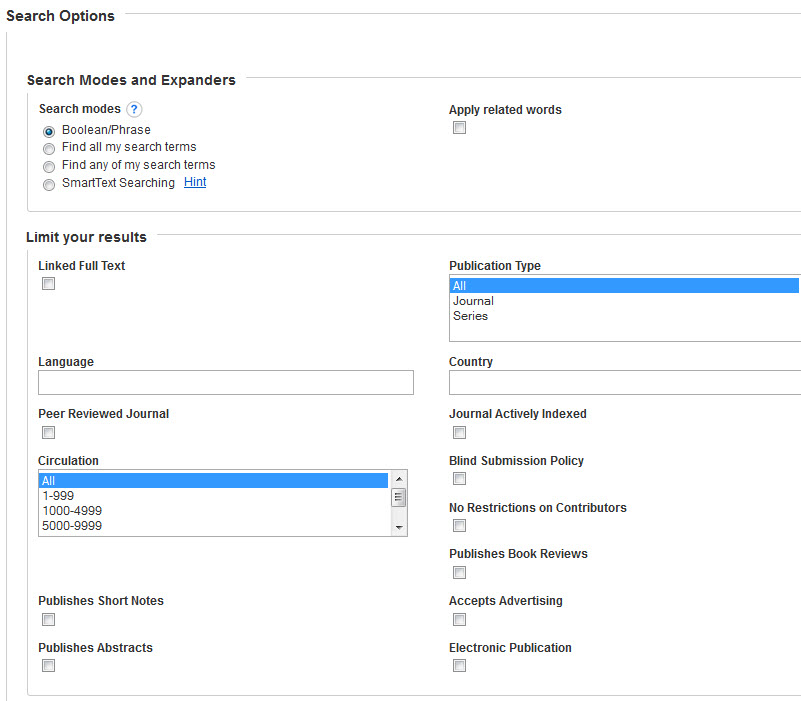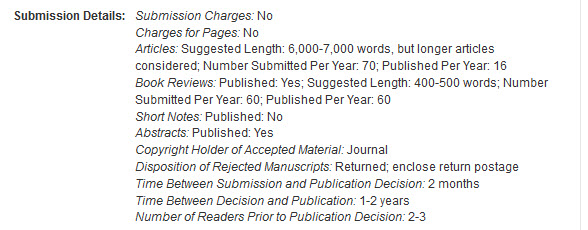
Database of the Month: MLA Directory of Periodicals
June 24, 2014
Ah, summer ... sun, fun, time to think about writing and publishing! The MLA Directory of Periodicals, published by the Modern Language Association, is a great source for finding potential publishing opportunities in language and literature disciplines. 
The Directory covers 5500+ journals and book series, 4400+ of which are indexed in the companion MLA International Bibliography, providing a mix of citations and full-text. Searching the Directory Using the EBSCOhost search platform, you can search using keywords or choose a particular field from the dropdown index menu. Using the Advanced Search, you can choose from a variety of search limiters, such as whether a journal is peer-reviewed, or accepts book reviews, abstracts and/or notes.
Each entry gives information such as publication start date, contact information, restrictions placed on contributors, languages in which the periodical's contents are published, editorial personnel, peer-review status, sponsoring organizations, and subjects covered. Also included are statistics on how many articles and book reviews are submitted and published each year. Below is part of the entry for the Journal of European Studies.
The database can also be searched by browsing its indexes. Use the Indexes option at the top of the search page and choose an index to view an alphabetical list of all of the elements in that index (for example, Publication Name or Subject). As with all EBSCOhost databases, you can register for a free account in order to save your search results and search history.
Connect to this Database/More Information
MLA Directory of Periodicals can be accessed via the library's Databases A-Z and Arts, Media, and Literature subject pages. For additional publishing resources, see the library's Publishing Resources for Faculty research guide.
Database of the Month provides a very brief introduction to an important research database, highlighting key features of the database that you should know about. If you would like more information about this database (or any of the library’s databases) please Ask a Librarian. If you would like a demonstration of this database for a class, please contact the Reference Desk.


